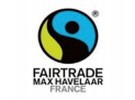The  Fairtrade / Max Havelaar movement has launched a €1 million project funded by the French Development Agency (with a €300,000 contribution from Carrefour) to support environmentally friendly practices and promote gender equality across the organic fairtrade banana supply line. To do this, it is supporting 11 cooperatives in Peru and in the Dominican Republic.
Fairtrade / Max Havelaar movement has launched a €1 million project funded by the French Development Agency (with a €300,000 contribution from Carrefour) to support environmentally friendly practices and promote gender equality across the organic fairtrade banana supply line. To do this, it is supporting 11 cooperatives in Peru and in the Dominican Republic.
Organic fairtrade bananas: 12% of the French market
With a 9% increase in global sales in 2019 and a 4% increase in France in 2020, the organic fairtrade banana is being seen as an increasingly essential product. The goal of Fairtrade/Max Havelaar is to guarantee the best possible working conditions. It does this is by providing producers with a guaranteed minimum price, giving them a development premium and establishing strict terms of reference governing sustainable agricultural practices. Bananas have won more market share than any other fairtrade product in France: they represent 12% of the market (84,000 tonnes sold in 2020), as opposed to 4% for coffee, for example.
A high-risk supply line: climate uncertainty, soil depletion and chemical products
The main issues affecting banana production in Latin America are pest control, water availability, fertilisation and protection against extreme weather. Monoculture and historical intensive use of fertilisers and chemical pesticides have resulted in a loss of soil fertility and lower levels of biodiversity, as well as increasing the vulnerability of crops to certain pests. This means that banana supply lines need to be adapted so they are able to withstand climate change, the way in which natural resources are managed needs to be improved and agricultural practices need to be diversified. These initiatives can involve systems for improving soil fertility, using organic inputs or diversifying crop-growing practices so as to ultimately bring about sustainable increases in productivity, as well as creating new sources of revenue or developing food-production agriculture.
The banana is also a loss leader – a product that attracts people to the fruit and vegetable section, and its low price in traditional supply lines does not always guarantee producers a secure position or enable them to improve their income. So a key challenge involves training and supporting cooperative managers so they can more effectively showcase what they produce on the market.
A €1 million project to increase the resilience of small producers to climate change, promote female empowerment and help the younger generation take over from the older generation
The Fairtrade/Max Havelaar banana market enjoying rapid growth in France
In France (2020):
- 84,000 tonnes of Fairtrade/Max Havelaar bananas sold, a 12% market share of the overall banana market in France.
- 4% increase sales in 2020
- 94% of Fairtrade/Max Havelaar bananas are also organic
Worldwide (2019):
- 747,425 tonnes sold in 2019 around the world
- 9% increase sales in 2019
- 34,973 producers and workers are beneficiaries of Fairtrade/Max Havelaar
